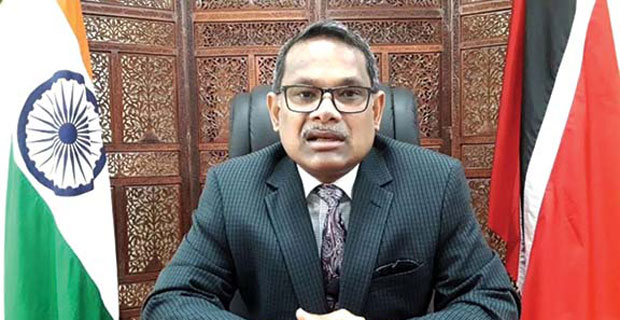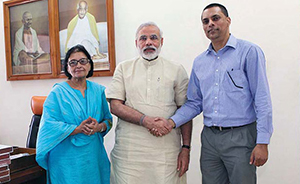“Self-reliance for India does not mean looking inward, but being a responsible global player”
The seeds of India’s democracy were sown even before India ...
Insofar as India’s relation with Trinidad and Tobago is concerned, this is also a landmark moment. It is the 60th year of establishment of diplomatic ties between our two nations. It is also 175 years since the first batch of indentured labour left India on the Fatel Razack and landed on the shores of Trinidad. Kindly give us your views on this…
The history of India’s relation with Trinidad and Tobago traverses over a century. Even before the formal establishment of diplomatic ties in 1962, leaders of both countries shared a personal bonding. As a student, Dr Eric Williams had met Jawaharlal Nehru in an Oxford tearoom in 1935, where the latter was lecturing a group of undergraduate students. He met him again in New Delhi in July 1961. The speaker’s chair in the red house with the engraving “From the people of India to the people of Trinidad and Tobago”, a gift from India, is “the seat of democracy”. It was to mark the independence of Trinidad and Tobago. Accepting the gift, the then Minister of Home Affairs, Mr A.G. Montano, had termed it “as a symbol of the supremacy of law and the democratic way of life”. This year marks the 75th year of the establishment of our diplomatic relations.
Even before this bonding of leaders who led their respective independent democratic nations to development and progress, Fath Al Razak, the first ship from Calcutta carrying 225 indentured labourers from India, had docked in the Gulf of Paria on 30 May 1845. Ever since those Indians and their descendants have become an integral part of building this rainbow nation of Trinidad and Tobago. We are proud of their successes.











Comments.